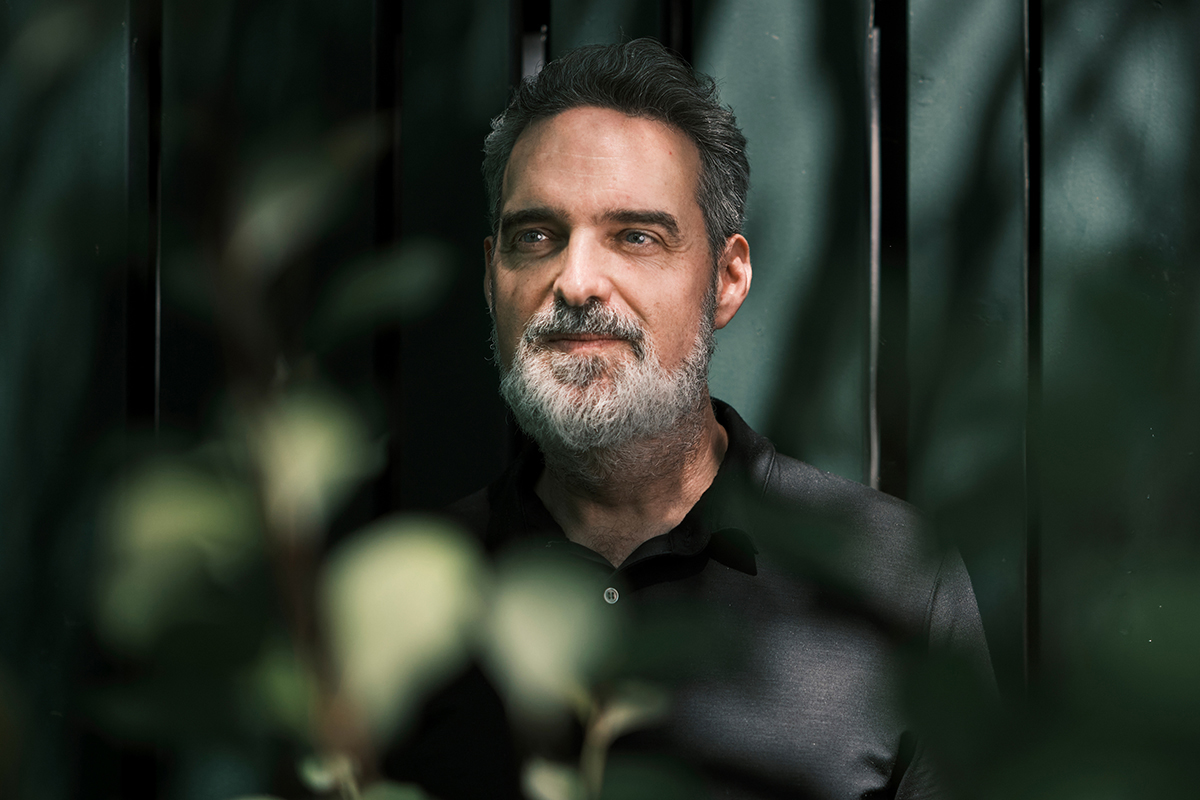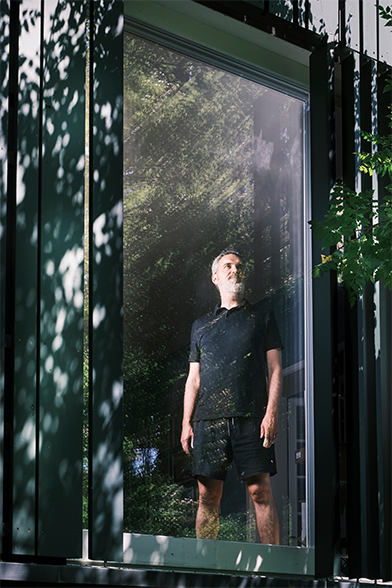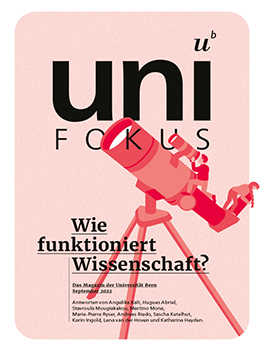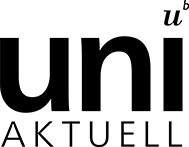Law
Seminars with Johnny Cash
Martino Mona is Professor of Penal Law and the Philosophy of Law at the University of Bern. What he particularly appreciates about his field is that it is not only socially relevant, but also of intellectual and philosophical significance.

Research can start in the middle of the night – when a professor gets stranded in a bar with a friend in which Johnny Cash is singing about shooting a man in Reno just to watch him die. “That night, we realized that these country songs focus on a lot of criminal issues such as murder and violence, atonement, retaliation and even racism,” explains Martino Mona. And that led to a seminar with students in which songs were analyzed for their penal law and legal philosophy content. And on the initiative of his doctoral student Jon Gashi, Martino Mona and his assistants will soon be offering a seminar on legal ambivalences in American rap, together with Bern-based rapper Tommy Vercetti.
Martino Mona is Professor of Penal Law and the Philosophy of Law and Co-Director of the Institute for Penal Law and Criminology at the University of Bern. He has a virtually overflowing digital folder of subjects he wants to investigate from an academic point of view.
After all, aspects relevant to penal law very often emerge in everyday events – not just in music, but also in media, literature, movies and in conversations with people. Mona would like to find out if there is a need for analysis and change in the legal situation. “I love the variety and the constant mental exhilaration. But I get extremely annoyed about the fact that I don’t have enough time to reflect sufficiently on everything that interests me.” It’s not just that he wants to write another essay or publish another book: Seminars, lectures and discussion groups are just as productive, if not even more so, for the transfer of knowledge – and much more pleasant and enjoyable anyway.
Empirical or normative approachIn law, there is not just one type of scientific approach. “We can work very empirically, collect data, describe phenomena,” Mona explains. “But in terms of methodology there is also a quite different, normative approach that is similar to philosophy or theology and which is far more along my lines of thinking.” His task as a legal expert is then essentially to argue: You define a problem area and argue for a particular interpretation of the law or for its change. You try to illustrate inadequacies or contradictions in order to promote the further development of the legal system and progress.
Every year, Mona has to tell the university what percentage of his working time he spends on research and what percentage on teaching – not an easy task to define the percentages as the two areas overlap: “When I am working on an essay, I am also working on a PowerPoint presentation for lectures at the same time. On the other hand, I can also create a research community with students within a seminar.” He explains that contact to other areas takes place harmoniously “without any great effort”.
My field is characterized by the fact that, on the one hand, it is highly relevant to society and affects people directly, and, on the other, it is intellectually stimulating, theoretically profound and philosophical.” You won’t find this combination in any other area. In terms of the quality of research, Mona fears that at some point, the academic approach could fall by the wayside. Especially since universities are regularly accused, by people outside, of training their students too theoretically. “There is an increasing danger that the universities will degenerate into law schools that focus unilaterally on supposed practical value. The Faculty of Law at the University of Bern has repeatedly defended itself against attacks of this kind. Luckily our self perception as a place of theory and knowledge is very strong.”
The big questionIn all of the subjects that Professor Mona would like to investigate, there is one unresolved question: What is actually a fair punishment? “Unfortunately, this question has not been able to be resolved yet because people are constantly distracted by other interests and needs, and don’t concentrate on what is essential, namely justice. And yet the answer would solve every significant problem in penal law.”
For Mona it is not just the exchange with colleagues, for example at congresses, that is important but also exchange with politicians for example when it is a question of regulating new phenomena in a sensible way. Although he does feel that it shouldn’t be underestimated that two worlds clash when science and politics come together. It is not only linguistic communication that works in a completely different way. The professor really starts gushing when he talks about his students and doctoral candidates. “They are extremely well trained, intelligent, obliging and dedicated. They have more reason to complain about us than the other way round.” If there are any problems with students, they are usually of a structural nature: He feels they are harassed unnecessarily throughout their studies and is convinced they could call up their best performance more easily, if they weren’t permanently afraid of failing. “They would then be far more courageous and original and would be more willing to risk a daring argument or criticism than just to repeat what others have already said hundreds of times.” This continuous pressure he says often hinders them from having an early career in academia. “And actually these are clever minds that would be able to come up with great things. So it is imperative that, during their studies, we make sure that they feel better and that they are respected.” The people in his faculty are already doing a lot towards this, says Mona, but he is sure that there is even more that could be done.
In the course of his career, Mona was given great support and encouragement from Professor Karl-Ludwig Kunz at the University of Bern and Professor Kurt Seelmann at the University of Basel. “I was an assistant at both universities at the same time and benefited greatly from that.” At an early stage, Mona was allowed to substitute for them in lectures. His doctorate proved no trouble and he was able to do research abroad. He even received financial help. What he did find difficult was the time when he didn’t know whether he would ever be able to become a professor. “I spent a long time as a member of the intermediate staff and during that time heard a lot of sad stories about people who feared losing their livelihood. But the University of Bern now has a very advanced approach in terms of the promotion of early career researchers”

Mona feels he has been lucky. In lots of ways. When he started teaching, he felt awkward: “I certainly wasn’t what you might call a natural!” But he got used to it over time. Now, teaching is the part of his work that makes him happiest. Naturally, he still feels his habilitation was “fantastic”. He has also won a few academic prizes but what is most important to him is that he is a good professor, a good teacher.
Originally from Ticino, Mona grew up close to Zurich. “When I used to go to Bern as a child with my mother, I always wanted to stay there at night and not go back to Zurich.” After various postings, also abroad, Mona has found his place in Bern. And he feels at home in his small office, where he finds the peace and quiet he needs to work, but in which he also sometimes just sits reflecting or doing nothing. His oldest daughter was born in the same building, that once served as a maternity hospital. Yes, sometimes he is into such “atmospheric things”. He also likes to swap ideas about all kinds of questions and problems that could be looked into from an academic point of view with his children – his oldest daughter is studying philosophy, his oldest son is studying to be a primary school teacher – and his wife Anna Coninx who is also a professor of penal law. Incidentally, if Mona hadn’t become a professor of penal law, he would have been a farmer. The idea of living in the countryside with animals, cultivating fields, really appeals to him. “I haven't actually given up on the idea of one day putting the idea into practice. Really, I would like to be a farmer and a professor at the same time.”
About
Martino Mona
Prof. Dr. Martino Mona is Professor of Penal Law and the Philosophy of Law and Co-Director of the Institute for Penal Law and Criminology at the University of Bern.
Contact: martino.mona@krim.unibe.ch
About the author
Regula Wenger is a freelance journalist, author and columnist and a member of the Basel press office Kohlenberg.
New magazine uniFOKUS

Subscribe free of charge now!
This article first appeared in uniFOKUS, the new University of Bern print magazine. Four times a year, uniFOKUS shows what academia and science are capable of. Thematically, each issue focuses on one specialist area from different points of view and thus aims to bring together as much expertise and as many research results from scientists and other academics at the University of Bern as possible.
The online magazine of the University of Bern

Subscribe to the uniAKTUELL newsletter
The University of Bern conducts cutting-edge research on topics that concern us as a society and shape our future. In uniAKTUELL we show selected examples and introduce you to the people behind them – gripping, multimedia and free of charge.